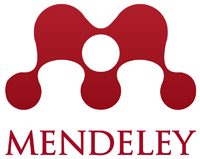The Influence of Trust on Contract Management
An Experience from Tanzania Context
Abstract
The study determined the influence of trust on contract management at the University of Dodoma. The study employed a case study research design and involved 118 participants. The data were collected using questionnaires and interview methods. Quantitative data analysis was used. Quantitative data were subjected are subjected to statistical analysis using computer-based software, Statistical Package for Social Scientists (SPSS) version 20. The findings revealed that trust has statistical significance with contract management. The multiple linear regression findings revealed that trust is significantly associated with contract management, which implies the need for improving certainty, credibility, intimacy, cooperation, certainty, shared goals, reliability and self-orientation to ensure trust in contract management. Therefore, the study recommends that the University of Dodoma have to improve degree of trust in contract management regarding the procurement process. This enhances user knowledge of what to do to ensure effective contract implementation during the procurement process. The University of Dodoma should create an environment that enables users, PMU staff and suppliers to work friendly by providing a communication platform whereby people can communicate and share information. As a result, it builds trust and shows commitment.
References
Brown, T. L., Potoski, M., & Slyke, D. V. (2016). Managing complex contracts: A theoretical approach. Journal of Public Administration Research and Theory, 26(2), 294-308.
Brown, T. L., Potoski, M., & Van Slyke, D. M. (2007). Trust and contract completeness in the public sector. Local Government Studies, 33(4), 607-623.
Burki, U., & Buvik, A. (2010). Do relationship history and norms matter in overcoming inter-organisational difficulties in the procurement function?. International Journal of Procurement Management, 3(3), 279-291.
Choi, T. Y., Wu, Z., Ellram, L., & Koka, B. R. (2002). Supplier-supplier relationships and their implications for buyer-supplier relationships. IEEE Transactions on Engineering Management, 49(2), 119–130.
Dimitrakos, T., Golby, D., & Kearney, P. (2004). Towards a trust and contract management framework for dynamic virtual organisations. eAdoption and the Knowledge Economy: eChallenges 2004, 1199-1207.
Dyer, J., & Chu, W. (2000). The determinants of trust in supplier-automaker relationships in the US, Japan and Korea. Journal of International Business Studies, 31(2), 259-285. https://doi.org/10.1057/palgrave.jibs.8490905
Francis, S. (2013). Challenges facing public institutions in implementantion of public procurement act no. 21 of 2004: The case of registrar of political parties (Master’s dissertation). Mzumbe University.
Inayatullah, N., Narain, R., & Singh, A. (2012). Role of buyer-supplier relationship and trust in organizational performance. Delhi Business Review X, 13(2 July-December), 73–82.
Jøsang, A., Keser, C., & Dimitrakos, T. (2005). Can we manage trust?. In International Conference on Trust Management (pp. 93-107). Springer, Berlin, Heidelberg.
Kaufman, A., Wood, C., & Theyel, G. (2000). Collaboration and technology linkages: A strategic supplier typology. Strategic Management Journal, 21(6), 649–663. https://doi.org/10.1002/(SICI)1097-0266(200006)21
Kimario, H. (2020). The influence of buyer-supplier relationships on the procurement performance of large manufacturing firms in Tanzania (Doctorial thesis). The University of Dodoma.
Loice, K (2015). Effect of Buyer-Supplier Relationships on Procurement Performance : Evidence from Kenyan Supermarket. European Scientific Journal, 1(December), 54–70.
Lysons, K., & Farrington, B. (2012). Purchasing and Supply Chain Management (8th ed.). London, Britain: Pearsons.
Mahuwi, L. T., & Panga, F. (2020). Procurement best practices and performance of public institutions in Tanzania: Experience from higher learning institutions. East African Journal of Social and Applied Sciences (EAJ-SAS), 2(2), 17–26.
Manishimwe, J. (2020). Effect of contract management on the performance of feeder roads construction projects (Doctoral dissertation, College of science and Technology), Department of Civil, Environmental and Geomatics Engineering, College Of Science and Technology School of Engineering, University of Rwanda
Mchopa, A. (2015). Integrating contract management practices into the achievement of value for money in Tanzania public procurement: Evidence from selected procuring entities in Moshi Municipality. Journal of public procurement, Volume 15, Issue 2, 129-149
Msemwa, L. S., Ruoja, C., & Kazungu, I. (2017). Influence of communication in buyer-supplier relationship and the performance of maize markets in Hai district Tanzania. International Journal of Economics, Business and Management Research, 1(2).
Musodza, M. (2009). Buyer-supplier relationship in the Zimbabwean Tobacco industry (Master’s dissertation). University of South Africa.
Mwakyelu, J. M. (2019). Challenges facing contract management in the public procurement: A case study of TANESCO in Iringa municipality, Tanzania (Master’s dissertation). Ruaha Catholic University.
Oyando, M., Kibet, Y., & Musiega, D. (2014). “Factors That Affect Performance of Procurement Department.” International Journal of Innovative Research and Development, 3(5)
Shahzad, K., Takala, J., Ali, T., & Sillanpää, I. (2015). Managing for success: The role of Transactional and Relational Mechanisms in Buyer-supplier Relationships. Journal Management, 10(1), 35–59.
Stuart, F., Verville, J., & Taskin, N. (2012). Trust in buyer-supplier relationships: Supplier competency, interpersonal relationships and performance outcomes. Journal of Enterprise Information Management, 25(4), 392–412. https://doi.org/10.1108/17410391211245856
United Republic of Tanzania. (1996). Sustainable Industrial Development Policy - SIDP. Dar es Salaam, Tanzania: Ministry of Industries and Trade.
United Republic of Tanzania. (2011a). Integrated Industrial Development Strategy- IIDS. Dar es Salaam, Tanzania: Ministry of Industries and Trade.
United Republic of Tanzania. (2011b). Public procurement act. Dar -es -Salaam: Government of Printer.
United Republic of Tanzania. (2018). The annual general report of the controller and auditor general on the audit of financial statements of the central government for the financial year ended 30th june 2018. Dodoma: Governmnet Printer.
Williamson, O. (1975). Markets and Hierarchies. New York: Sage Publications,Thousands Oaks.


.png)



















.jpg)



 Contact Person +6282139474255
Contact Person +6282139474255 Email : editor.ajmesc@gmail.com
Email : editor.ajmesc@gmail.com
